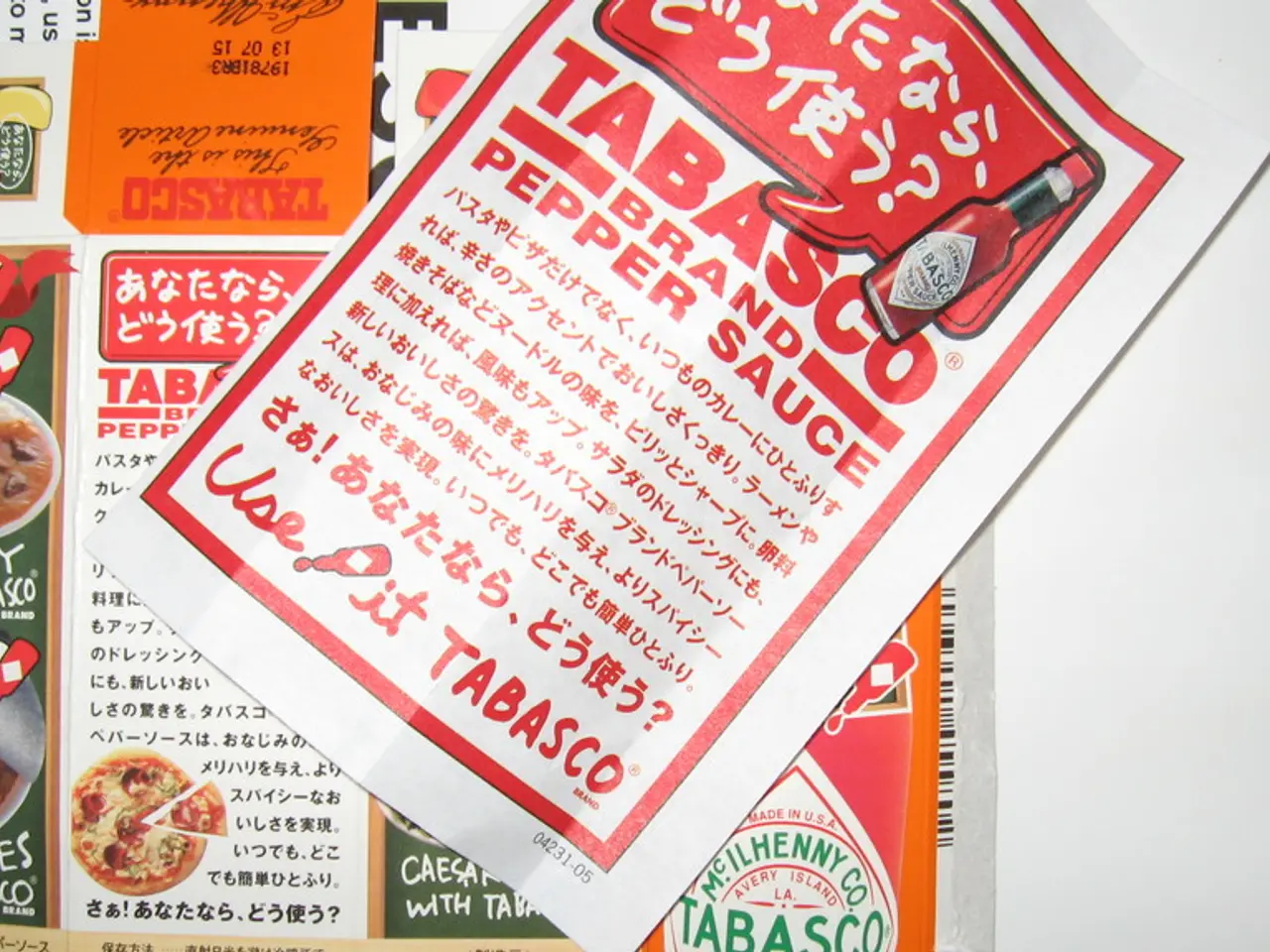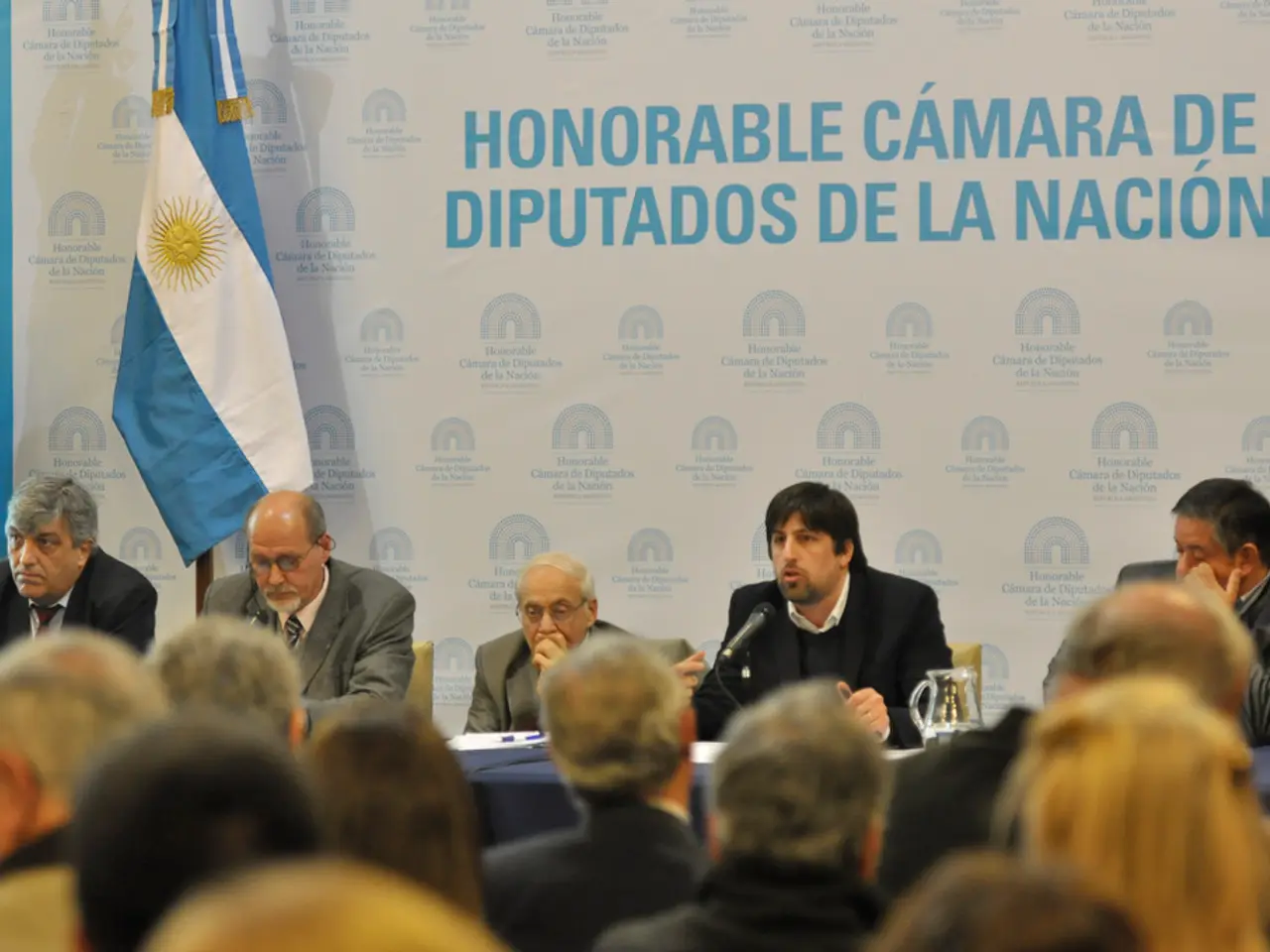Modi Maintains Stubborn Position on Safeguarding Farmers in the Face of Intense US Tariff Turmoil
In a significant move, Indian Prime Minister Narendra Modi has reaffirmed his commitment to protecting Indian farmers and domestic interests, a policy known as Modi On Protecting Farmers. This deliberate policy articulation defends sovereignty, supports grassroots economies, and signals to the global community that India will not buckle under trade pressure.
Several MPs in Parliament have cited this policy while supporting the government's stand against tariff-induced coercion. The US, in response, has imposed a 50% tariff on Indian goods, primarily affecting sectors like textiles, shrimp, pharmaceuticals, and gemstones.
The tariffs are in part due to India's continued purchase of Russian oil. However, the Indian government has labeled the US tariffs as "unfair, unjustified, and unreasonable." The government has hinted at reciprocal measures in response.
The first 25% round of tariffs has already taken effect on August 7, with the second wave scheduled in 21 days unless a compromise is reached. Negotiations between the two countries have been difficult due to impasses on agricultural access and digital trade.
India has resisted US demands to reduce tariffs on farm imports such as corn, soybeans, apples, cotton, almonds, and ethanol, and rejected the entry of US GM crops. This stance has led to a doubling of US tariffs on Indian goods as a punitive measure.
Despite the increased US tariffs and pressure, Modi has publicly stated his readiness to personally bear heavy political and economic costs to protect farmers, dairy farmers, fishermen, and livestock rearers from foreign pressures to lower tariffs or open markets to genetically modified agricultural products.
This policy has garnered strong domestic support from farmer leaders and organizations who view Modi's stance as historic and reinforcing agricultural self-reliance, pride, and rural morale. The focus of the Indian government is on diversifying export destinations, enhancing manufacturing resilience, and promoting innovation in food processing and agricultural logistics.
The current implications of Modi's policy are a firm refusal to compromise on agricultural protections, aimed at safeguarding Indian farmers' interests and rural self-reliance. Potential consequences include escalated trade tensions with the US, increased emphasis on indigenous agricultural innovation and resilience measures, and a strengthened political base in rural India for Modi.
In response to these US tariffs, the Indian government is doubling down on its Make in India and Atmanirbhar Bharat (Self-Reliant India) initiatives. New schemes are being rolled out to provide interest subsidies, tax relief, and logistical support for export-heavy sectors now exposed to higher US barriers. India is also expanding bilateral trade agreements with the UAE, UK, and Australia to buffer the impact of the US tariff wall.
The Marine Products Export Development Authority (MPEDA) has expressed concerns about the impact on shrimp exporters, who are already burdened by high feed costs. Exporters and Small and Medium Enterprises (SMEs) in affected sectors are bracing for fallout and calling for immediate government support.
The Indian External Affairs Ministry has noted that strategic partnerships should not be transactional and warned that targeted economic coercion undermines the trust the US seeks to build in the Indo-Pacific. This underscores the complex web of geopolitical and economic considerations that underpin Modi's policy of protecting Indian farmers.
In summary, Modi’s policy prioritized farmers’ protection over concessionary trade measures demanded by the US, resulting in heightened trade tensions but reinforcing India’s agrarian autonomy and rural support. The government's response to these US tariffs reflects a commitment to self-reliance, innovation, and strategic diplomacy in the face of global disruption.
- The escalated war-and-conflicts between India and the US over tariff-induced coercion is evident in the increased US tariffs on Indian goods and the Indian government's response, which includes a focus on self-reliance and diverse export destinations, representations to strategic partners, and an expansion of bilateral trade agreements.
- The politics surrounding war-and-conflicts and policy-and-legislation, such as trade tariffs, have been a significant part of general-news recently, as seen in the ongoing disagreements between India and the US over agricultural access, digital trade, and the US demands for lower tariffs on farm imports.








